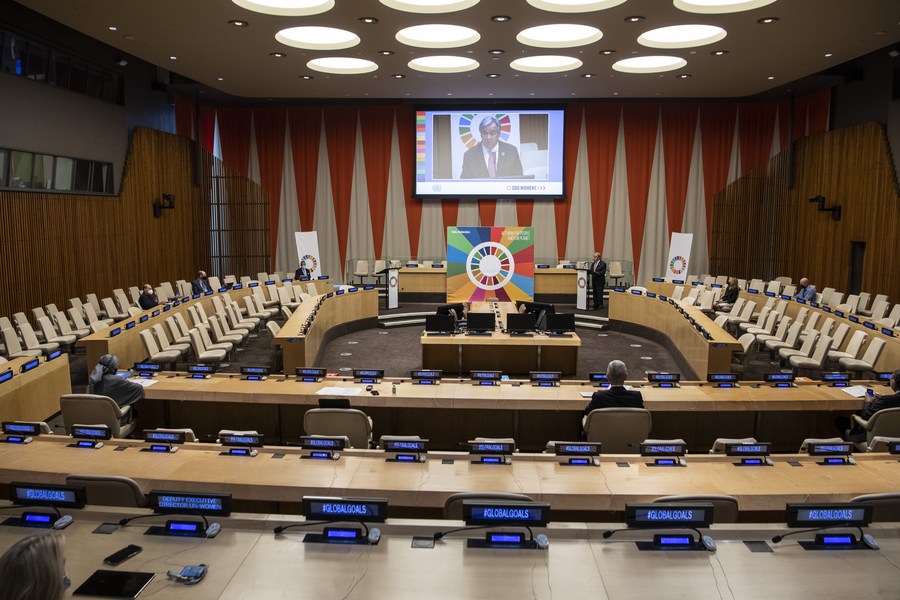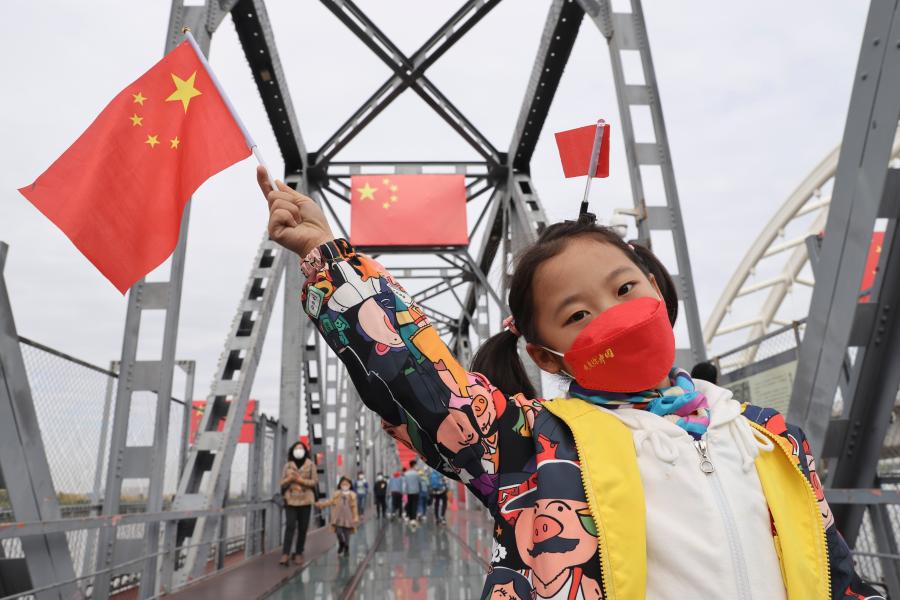Annette Nijs, who is Former Dutch Cabinet Minister Education, Culture and Science, President of Business School Netherlands, delivered a speech at the International Symposium on Chinese Path to Modernization and Global Development Initiative. The speech was first published by China Focus.
It is important that the world gets behind China’s Global Development Initiative (GDI). In President Xi Jinping’s speech ‘Bolstering Confidence and Jointly Overcoming Difficulties To Build a Better World’, he urged the world to stay committed to development as a priority on the global macro policy agenda. He urged the world to speed up the implementation of the UN 2030 Agenda for Sustainable Development by focusing on results-oriented actions.
The GDI is important not only for improving the well-being of people and that of our planet. It is of equal importance to maintain world peace by making nations work together on something in which they all believe irrespective of their differences: the 17 UN Sustainable Development Goals (SDG). The 2030 Agenda of the 17 SDGs was adopted by all United Nations Member States in 2015, and ‘provides a shared blueprint for peace and prosperity for people and the planet, now and into the future’.
The Circle of Friends of GDI currently consists of some 130 countries, quite an achievement within one year after the above-mentioned speech from President Xi at the UN. But we need more countries to join. Wouldn’t it be something if all other countries in the world would join this Circle of Friends of GDI, especially also countries from the West? That, to me must be the final objective of GDI.

We live in a world with ample space for Western, Eastern and other ideologies. It is high time to embrace diversity between countries and work together to make the world a better place. We are living in restless times, which we need to bring to a good end. So, how can GDI further grow into a world-wide initiative?
GDI allows us to get into a positive mindset for global cooperation despite our seemingly irreconcilable values. GDI will encourage us to have a mindset where the conversation and cooperation between nations is not dependent on value systems but on realizing objectives for the prosperity of the planet and of all people as we will pursue the achievement of objectives, which we all share: the 17 SDGs of the UN. When all countries are working together on these SDGs, we all may start to feel in our bones the harmony of diversity and we all may start to embrace diversity between nations.
China brings many new opportunities to the world.
How can we make the whole world join the GDI? That is a big question.

China needs to make an offer no nation can refuse. The global cooperation on climate change and the cooperation of China, U.S., and India on the abolishment of some of the patents for Covid-19 vaccines, convince me that it is doable: challenging for sure, but doable. In making this offer, China should invite other nations to join by putting the focus of GDI on action, action and action.
I can picture a gigantic GDI to-do list for the world. A global to-do list of the top 1,000 actions for each of the 17 UN Sustainable Development Goals, which the world needs to act upon in order to achieve the UN 2030 goals. Actions for the top 50 countries, which currently have the lowest achievement score on each of the SDGs. Actions, which bridge the major gaps in where we are and where we want to be for all the 17 SDGs.
I can picture a dashboard – a sort of GDI map of the world –, which clearly shows which nation is actively supporting GDI in the realization of the top 1,000 actions for each SDG and which policy, practical innovations and new research are applied. A global GDI dashboard, which also tracks the contribution of each of the actions to the achievement of the 17 UN SDGs by 2030.
When countries, who have not yet made the decision to join GDI, watch the global GDI dashboard, they will see the success of GDI with their own eyes. When they see this success, I do believe they want to join in. They want to join the winning teams. They want to get on board. They want to be seen on the global GDI dashboard.
I would like to invite those who are reluctant to consider joining GDI to reconsider. The world is at an important crossroads. To those, who mistake China’s confidence on GDI for China’s urge for world power, I would say: let go of your idea that international collaboration is only possible on a shared value basis. If we can trade with each other despite our value-differences, why can’t we work together on resolving the challenges of the 2030 UN Agenda? If we try, we may be pleasantly surprised of the outcome.

With GDI, we can experiment on how best to work together across countries in different multilateral groups. It will show us how collaborating together we can benefit of knowledge and insights from countries, who are partnering together. We can learn that seeking common ground is not only the good thing to do but also a nice thing to do.
And most of all, a successful GDI may give us a good opportunity to keep us all together. It may significantly contribute to retaining world peace, whilst we combine the well-being of the planet with that of ourselves.
We live in a world with ample space for Western, Eastern and other ideologies. It is high time to also accept and embrace diversity between countries. We do not need to share the same values to collaborate together within the GDI framework or to tackle any other global challenge.